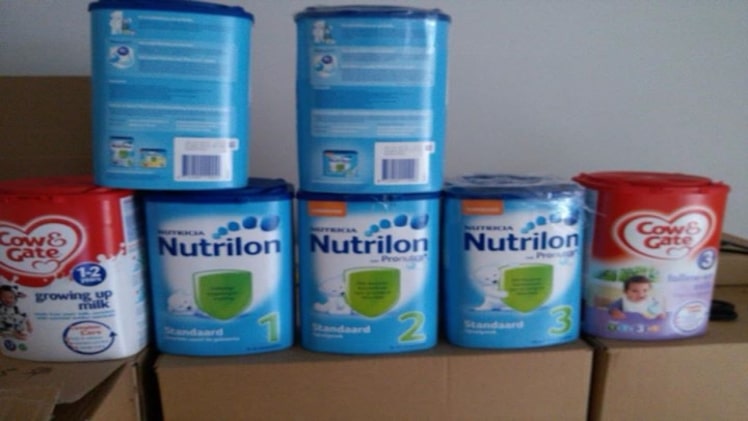Before you choose the right formula for your baby, it’s important to understand the difference between Stage 1 and Stage 2. In this article, we’ll discuss the benefits of each, plus the differences between Stage 1 and the follow-on formula. Stage 2 contains a higher caloric content and is appropriate for babies six months and older. Both formulas contain the same essential nutrients, but differ slightly in their amounts of fatty acids, vitamins, minerals, and other ingredients. For example, stage 1 contains Mortierella alpina oil, while stage 2 has potassium citrate and adds zinc oxide and emulsifier lecithins.
Stage 2
When your child is ready for a new phase of feeding, try Stage 2 in baby formula. This organic formula contains goat milk and meets organic farming regulations. It’s not only a great choice for your baby, but it also contains the right balance of vitamins, minerals, and fats. For the best nutritional benefits, give your child this organic formula, which is also made in accordance with organic farming regulations.
Stage 2 baby formula is packed with essential fatty acids, and is especially gentle on your infant’s developing tummy. Because it contains no gluten or sugar, it’s suitable for even the smallest babies. Unlike most other brands, this organic formula contains a high content of DHA from fish oil. It’s also easy to digest and tastes delicious. Whether you prepare it yourself, or you buy it at a grocery store, Stage 2 is an excellent choice for your baby.
Stage 2
Stage 2 in infant formula provides your baby with a nutritious and balanced diet. This formula is recommended for infants and young children from two months to two years old. As your child grows, the nutritional needs of his body will change. He will require more iron and vitamin D and less protein than he did as an infant. Ensure that your child’s formula contains these necessary nutrients. To help your baby grow up strong, you can give your child Stage 2 in baby formula.
Stage 2 in baby formula has a special fiber based on lactose, iron to support cognitive development, and vitamins A, C, and D to help your baby’s immune system and bone development. It also has the right amount of protein to help your child’s digestive system function and develop properly. By choosing Stage 2 in baby formula, you will be giving your child the best start in life.
Goat Stage 1
You might be wondering what makes Goat Stage 1 in baby formula different from other formulas. This popular brand produces infant formulas using goat milk, which is considered an organic dairy product. And it’s made in accordance with the regulations of organic farming. Organically-produced baby formulas are considered to be the best way to introduce your child to dairy products. You can read more about the benefits of goat milk in infant formulas in this article.
As a goat milk product, Goat Stage 1 is a good choice for babies from birth, or even when transitioning from breastfeeding. Its creamy texture keeps your baby fuller longer, and it supports the natural digestive process. And it comes in a 400-gram tub, so your baby can enjoy the taste and smell of real goat milk. Alternatively, you can make porridge with this formula.
Specialty formulas
There are several different types of specialty formulas for different stages of a baby’s life. Some are made from soy while others are made from cow’s milk and are modified to be closer to breast milk. Both types of formula are suitable for most babies, but some babies are not suitable for the other type. Specialty formulas are available for babies with specific diseases, digestive problems, or allergies. There are also formulas for babies with certain cultural or dietary needs.
Infant formulas are the most common form of baby food. However, they can be more complex than regular formulas, and they are best suited for babies that have just started solid food. For example, formulas made with stage two contain more protein and calories than formulas for earlier stages. In addition, these formulas also have more vitamins and minerals, although the ratios can vary. Some brands even make formulas that are formulated for babies who are older than six months old.
Follow-on formulas
When it comes to feeding your baby, there are two different types of baby formulas: infant and follow-on. Infant formulas are designed for babies who cannot yet eat solid foods. Follow-on formulas are meant for babies who are 6 months of age or older. Stage 1 formula is starch-free, while stage 2 formulas have an organic starch content to keep your baby full longer. Stage 2 formulas have added malt dextrin to improve the texture of bowel movements. Both stages contain vitamin B12 and L-carnitine, but there are some differences.
Conclusion
The first stage of follow-on formulas is the most important, because this food is designed to supplement and replace breast milk. Follow-on formulas are meant to be fed alongside mixed meals at six months, and they typically contain more iron and complex carbohydrates to keep your baby fuller longer. It is recommended that infant formula be fed until 6 months, although some babies can continue drinking it up to 1 year of age.

